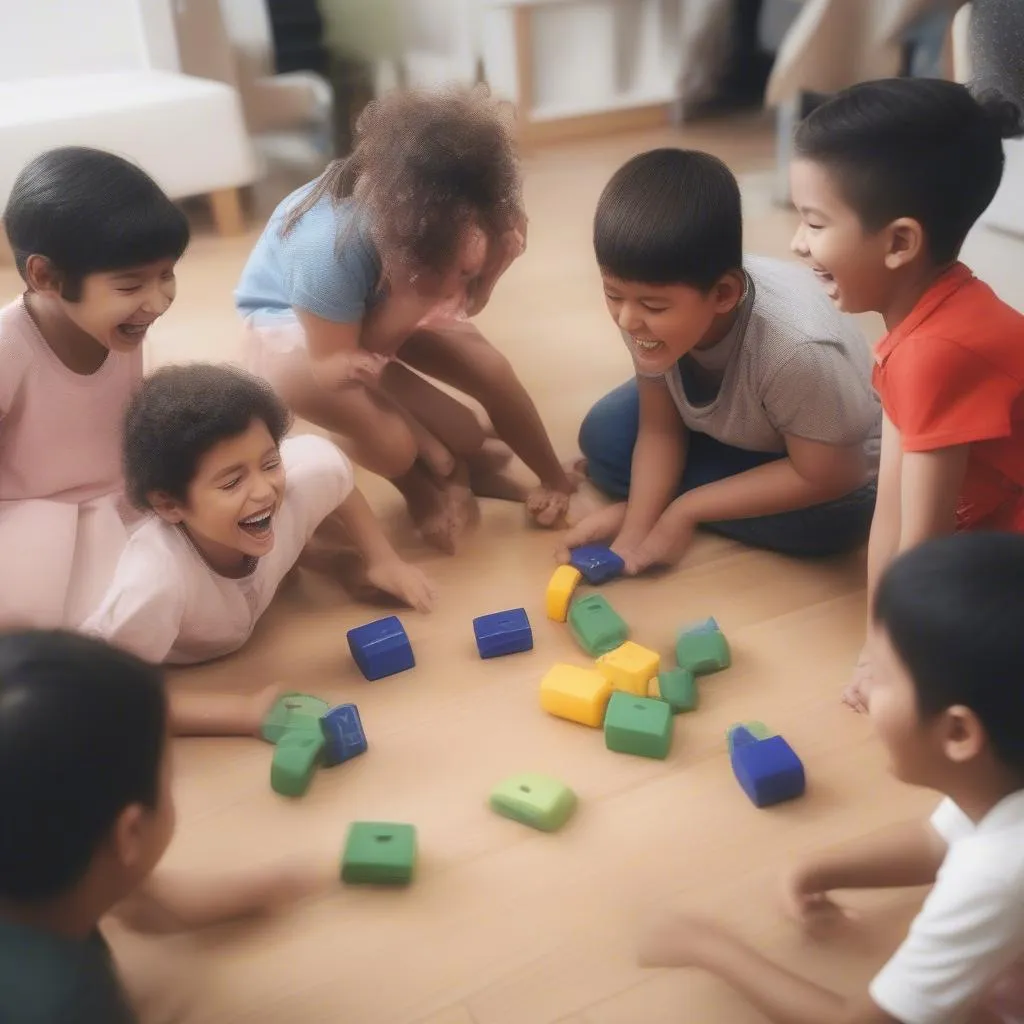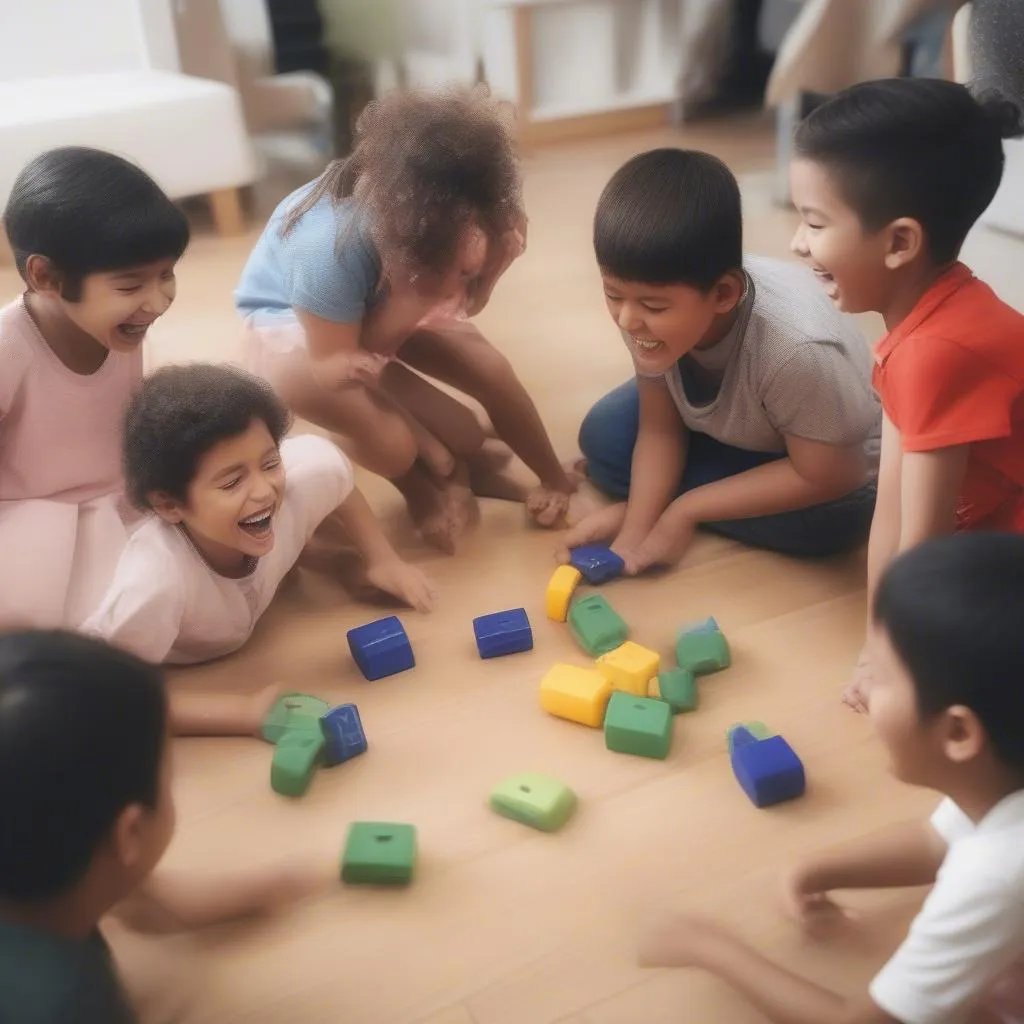“A straight tree fears no crooked shadow” – this familiar proverb contains a profound truth about honesty and sincerity, qualities essential for building good social relationships. From a young age, parents dedicate a lot of effort to teaching their children basic life skills, among which social-emotional skills play a crucial role. So, what should a social-emotional skills curriculum for 6-year-olds include?
Social-Emotional Skills for 6-Year-Olds: A Foundation for the Future
The Importance of Social-Emotional Skills at Age 6
Social-emotional skills are the abilities to understand and interact effectively with others, demonstrated through a child’s behavior, communication, conflict resolution, and expression of emotions. For 6-year-olds, developing these skills is extremely important because:
- Building a Solid Foundation for the Future: Children will easily integrate into the school environment, build good friendships, and develop confidence, independence, and proactivity in life.
- Helping Children Become Happy and Confident: Children learn to express their emotions, resolve conflicts, and understand and share emotions with others, which helps them feel happier and more confident in their interactions.
- Preparing Children for the Next Stage: When children enter elementary school, learning and adapting to a new environment will be easier if they are equipped with the necessary skills.
Content of a Social-Emotional Skills Curriculum for 6-Year-Olds
A social-emotional skills curriculum for 6-year-olds typically includes the following topics:
- Understanding and Expressing Emotions: Children need to learn to recognize and name basic emotions such as joy, sadness, anger, and fear, as well as learn to express emotions appropriately and safely.
- Effective Communication Skills: This includes how to listen, speak, ask questions, and share thoughts and feelings clearly and understandably.
- Cooperation and Teamwork: Developing the ability to work with others, share tasks, respect others’ opinions, and resolve conflicts peacefully.
- Building Self-Esteem: Children need to learn to love themselves, respect themselves, and be confident in their abilities.
- Problem Solving: Children need to learn how to think and find solutions to simple problems, as well as develop the ability to make decisions and take responsibility for their actions.
Social-Emotional Skills Curriculum for 6-Year-Olds: Practical Suggestions
 Six-year-old children playing a game for social-emotional skills development
Six-year-old children playing a game for social-emotional skills development
Playing Games: This is an effective method to help children learn while playing. Some games to develop social-emotional skills for 6-year-olds include:
- Role-Playing Games: Have children role-play different characters in everyday situations, such as going to the market, going to school, visiting grandparents, etc., to practice communication, behavior, and problem-solving skills.
- Team Games: Play games that require cooperation, sharing, and helping each other, such as tug-of-war, jump rope, building blocks, etc.
- Storytelling Games: Tell stories about friendship, family affection, sharing, etc., to help children learn to empathize and understand the emotions of others.
Storytelling and Discussion
Storytelling: Tell stories about topics related to social-emotional skills such as courage, honesty, kindness, etc., to help children learn from good examples.
Discussion: After storytelling, you can ask questions to encourage children to think and share their feelings, for example:
- Which character in the story do you like the most? Why?
- What did you learn from the story?
- If you encounter a similar situation, what would you do?
Practical Activities
Practical Activities: Engage children in practical activities to develop social-emotional skills, such as:
- Helping Others: Have children do small tasks such as cleaning the house, helping parents with housework, etc., to teach them to share tasks and care about others.
- Participating in Community Activities: Have children participate in volunteer activities, such as donating supplies to poor children, participating in environmental cleanup, etc., to teach them to love and help those around them.
Advice from Experts
Prof. Dr. Nguyen Van A – A renowned educational psychologist, believes: “Developing social-emotional skills for 6-year-olds requires patience and dedication from parents. Do not impose or force children, but create a fun, learning, and positive interaction environment for children to voluntarily absorb and develop skills.”
Social-Emotional Skills for 6-Year-Olds: Key to a Happy Life
Social-emotional skills are invaluable assets that every parent should equip their children with from an early age. Take the time to care for, teach, and accompany your children on their journey to develop these skills. With love, patience, and appropriate methods, parents will help their children become happy, confident, and successful in life.
Please contact us via phone number 0372666666 or visit us at 55 To Tien Thanh, Hanoi for professional advice and support. Our 24/7 customer care team is always ready to accompany you!
Please share this article with those you care about to nurture happy sprouts together!
